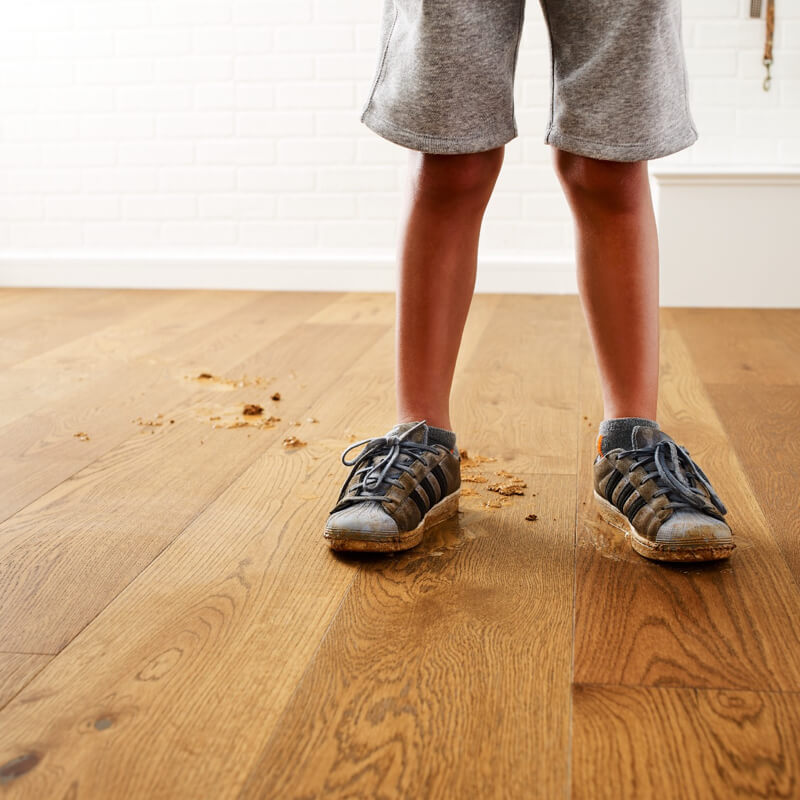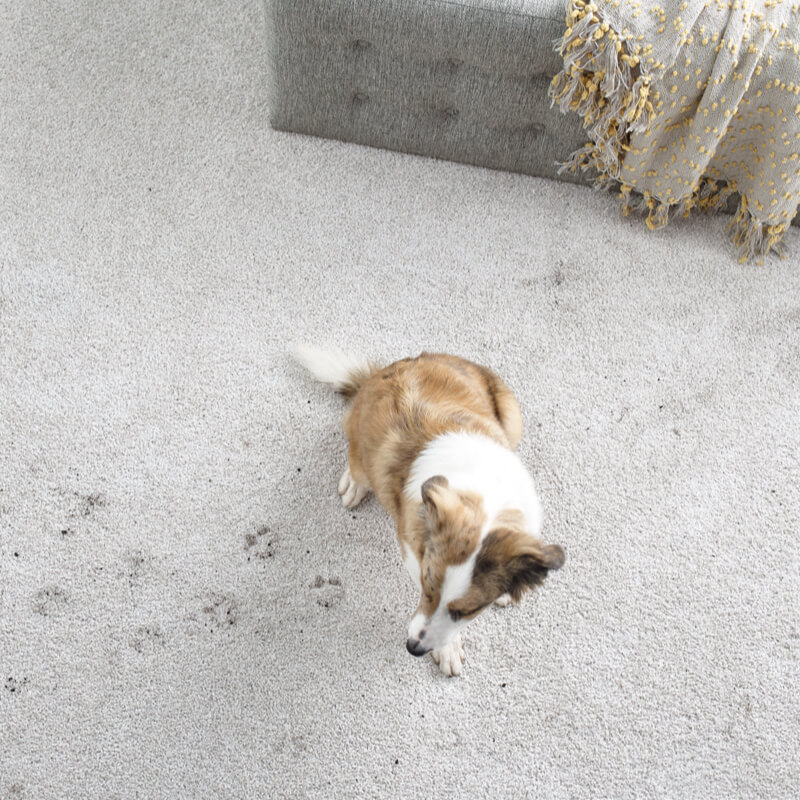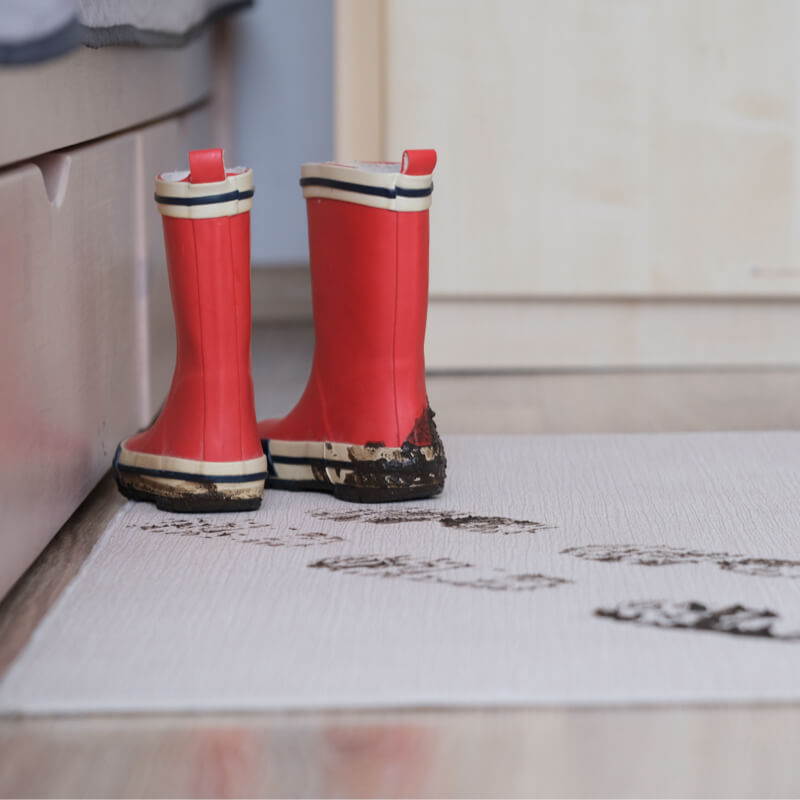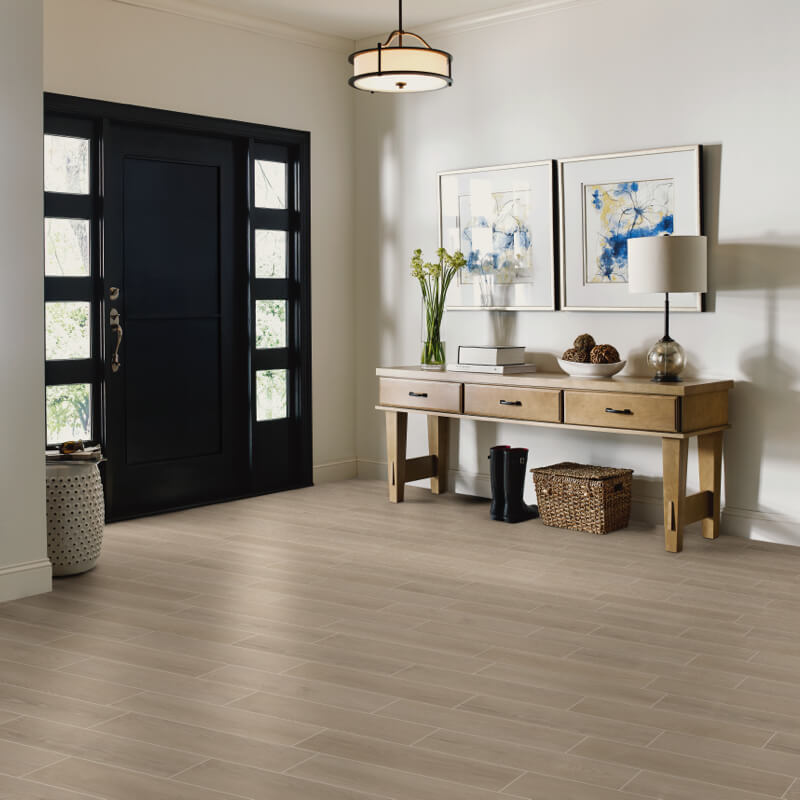Floor Protection in Any Weather
It’s easy to focus on what’s happening outside your windows, but changes in the weather can bring challenges indoors as well.
Whether it’s heavy rain, fallen leaves, or muddy soil, moisture and debris inevitably find their way inside. Once they do, they can dull finishes, stain surfaces, and wear down the beauty of your floors over time.

Your flooring is one of your home’s biggest investments, so it’s important to protect it. A few small, consistent habits can go a long way in ensuring it remains beautiful.
By taking simple, proactive steps, you can prevent weather-related wear and preserve the look and performance of your hardwood, laminate, tile, and carpet, no matter the season.
Everyday Threats to Your Floors
Damage isn’t caused by one single factor. It’s often a combination of moisture, grit, and organic debris. Understanding these everyday culprits helps you take targeted steps to protect your floors from gradual wear. Dirt and moisture can come from all sorts of daily routines, from muddy shoes after gardening to pets tracking soil across the entryway.
- Abrasive Grit and Dirt: Tiny particles from sidewalks, pets’ paws, or outdoor shoes act like sandpaper underfoot. Over time, they can leave fine scratches on wood and vinyl, or make tile look dull. Keeping this debris in check helps your floors stay smooth and polished.
- Standing Water and Moisture: Damp shoes, spills, or tracked-in rain can warp or discolor wood and laminate and weaken carpet backing or grout if left unattended. A little attention now prevents bigger issues later.
- Organic Debris (Leaves, Mud, Pine Needles): Natural matter often carries tannins or acids that can stain lighter floors and carpets. Wiping it up promptly protects your surfaces from lasting marks.

Protecting Floors at Entryways
The best way to safeguard your floors is to stop dirt and moisture before it travels too far. A layered approach at entrances creates a welcoming transition while keeping your floors cleaner, drier, and safer.
- Exterior Mats: A sturdy mat outside the door catches large clumps of mud and moisture before they get inside. Materials like coir or rubber are ideal because they scrape away debris effectively.
- Interior Mats: An absorbent runner or mat inside gives shoes a chance to dry and captures smaller particles that slipped past the exterior mat. Choose one that’s easy to clean and won’t slide around.
- Boot and Shoe Trays: Place a tray in busy areas to corral wet or muddy footwear. It’s a simple step that keeps your floors dry and clean without constant effort.
Adding a small bench or chair nearby encourages everyone to remove shoes comfortably, keeping outdoor messes at the door.

Interior Cleaning and Care Routines
Even with the best entry protection, some dirt and water will inevitably make it inside. Quick action and a thoughtful cleaning routine prevent small messes from turning into lasting damage.
- Sweep or Vacuum Often: Increase frequency during wet or muddy stretches, especially near entryways. Using a soft-bristle broom or a gentle vacuum setting keeps grit from scratching hard floors.
- Handle Spills Promptly: Blot wet spots or stains immediately with a dry cloth. Following manufacturer guidelines for cleaning ensures that marks from mud or leaves don’t become permanent.
- Check for Leaks: Regularly inspect doors, windows, and entryways for slow leaks or damp areas. Catching these early protects both the floor and the subfloor from hidden damage.
Different flooring types respond differently to moisture and debris, so care routines should reflect those unique needs.
Hardwood and Laminate
Hardwood and laminate are particularly sensitive to moisture. These surfaces absorb water easily, which can lead to warping or a damaged finish if not managed carefully.
- Mopping: Use only a lightly dampened mop or a spray mop. Avoid standing water, steam, or harsh cleaners that can compromise the finish.
- Prevent Scratches: Wipe away grit as soon as you see it, and add felt pads under furniture legs. These small steps help your floors maintain their smooth surface over time.
Porcelain and Ceramic Tile
Tile is durable, but its grout lines are more susceptible to staining and moisture absorption.
- Seal the Grout: Periodically resealing natural or cement-based grout keeps water and debris from creating stains that are tough to remove.
- Clean Gently: Sweep away grit before mopping, and use a pH-neutral cleaner to protect both the tile and grout without compromising the finish.
Carpet and Area Rugs
Carpet and rugs trap dirt and moisture more easily than hard surfaces. Without prompt cleaning, stains and odors can set in or reach the padding below.
- Blot, Don’t Rub: For mud or moisture, blot immediately with a clean, dry cloth. Rubbing pushes debris deeper and can make stains worse.
- Dry Thoroughly: If rugs or carpets get wet, make sure they dry completely to prevent mold, odors, or damage to the subfloor.

Simple Steps Make a Big Difference
Protecting your floors doesn’t require a major investment, just consistent, mindful care. A layered mat system, quick cleanup habits, and attention to moisture go a long way in keeping floors looking their best throughout the year. By thinking about how weather, daily routines, and lifestyle factors affect your home, you can preserve both beauty and performance.
To find the best flooring for your home and lifestyle, visit CarpetsPlus COLORTILE in Bloomington, IN. Our team can help you explore durable, low-maintenance options that suit your space and stand up to every season.
